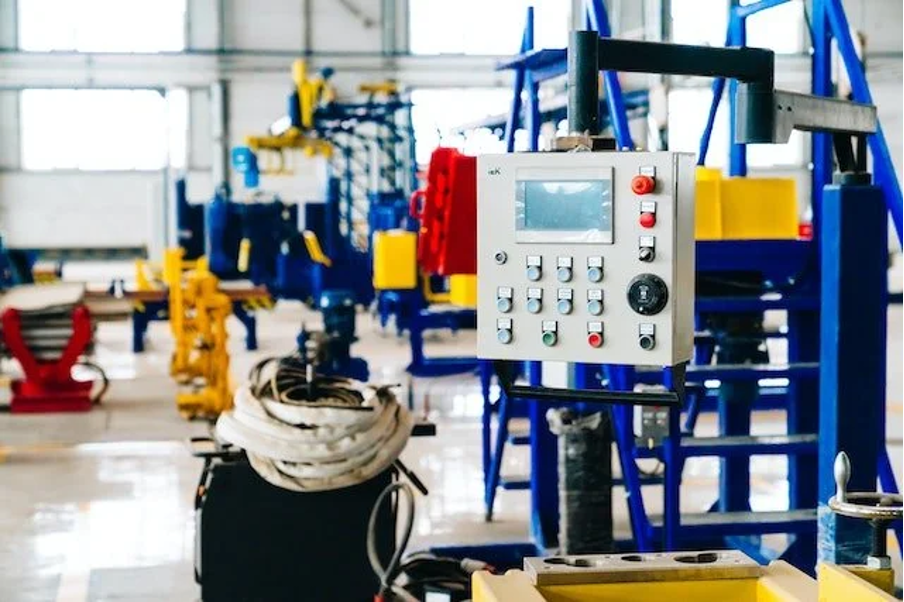Resources
The Importance of Control Panels in Industrial Automation

Control panels have become essential for managing, monitoring, and controlling electrical systems. These panels serve as central hubs for electrical instruments, facilitating the automation of processes. From manufacturing plants to energy facilities, control panels are essential for ensuring smooth operations and optimal efficiency.
This article will further explore the key features of control panels and highlight the importance of good-quality control panels in industrial automation.
What are Control Panels?
A control panel is an enclosure that houses a range of electrical components. These include circuit breakers, relays, transformers, and switches. These components all work together to control electrical systems and machinery in industrial environments.
When it comes to automated industries, control panels enable operators to remotely control and monitor equipment. The modern control panel integrates both hardware and software, providing to comprehensive solution for managing processes.
Key Features of Control Panels
Let us look at a few key features of control panels to understand their functionality and importance:
1. Centralized Control
The primary feature of control panels is the ability to centralize control. Instead of manually operating machines, it enables operators to monitor and adjust the entire electrical system from a central location. This centralized control enables better coordination of processes, making it simpler to spot and resolve problems.
In complex environments such as factories or power plants, this centralization is crucial for maintaining high levels of productivity.
2. Real-time Monitoring and Automation
Modern control panels are equipped with advanced sensing and monitoring capabilities. These panels continuously monitor key operational parameters such as voltage, temperature, and current, providing real-time data to operators.
Many control panels incorporate automated features that allow operators to set parameters and make adjustments.
For example, control panels can automatically shut down equipment if they detect hazardous conditions, thereby minimizing risks to workers and equipment.
3. Safety Features
Safety is a top priority in industrial environments, and control panels play a crucial role in protecting both workers and equipment. They often include features such as emergency stop buttons, overload protection, and short-circuit protection.
In the event of a fault, the control panel can initiate shutdown procedures, ensuring that no further harm occurs to the system.
4. Energy Efficiency
With the rising focus on sustainability, energy efficiency has become a key consideration in industrial automation. Control panels help optimize energy use by adjusting settings based on real-time demand.
For instance, they can monitor power consumption across various systems and make adjustments to reduce unnecessary energy usage.
5. Customization and Scalability
Control panels can also be customized to meet the specific needs of a facility. Whether it’s a small residential application or a large industrial setup, they can be tailored to handle a wide range of equipment and processes.
Now that we know the key features of control panels, let us look at their importance:
| Features | Importance |
| Centralized Control | The ability to analyse this data helps ensure that the system is functioning optimally, while also allowing for quick identification of faults. |
| Real-Time Monitoring and Automation | Automation capabilities help reduce the need for manual labour and streamline processes, making systems more efficient and reducing potential human errors. |
| Safety Features | These help prevent accidents and damage to equipment. |
| Energy Efficiency | This helps reduce operational costs and contributes to environment sustainability. |
| Customization and Scalability | Such flexibility ensures that each individual facility has a control panel optimized for its unique operations. |
Importance of Good Quality Control Panels
Control panels are vital components in industrial automation, providing centralized control, real-time monitoring, safety features, and enhanced energy efficiency. The ability to monitor and control equipment remotely, automate processes, and ensure safety makes control panels indispensable for modern industrial operations.
When selecting control panels, opt for reputable electrical brands recognized for their quality and reliability. A trusted brand ensures that the control panels meet safety standards, incorporate the latest technologies, and offer long-lasting durability.

-

 Resources4 years ago
Resources4 years agoWhy Companies Must Adopt Digital Documents
-

 Resources3 years ago
Resources3 years agoA Guide to Pickleball: The Latest, Greatest Sport You Might Not Know, But Should!
-

 Resources8 months ago
Resources8 months ago50 Best AI Free Tools in 2025 (Tried & Tested)
-

 Guides2 years ago
Guides2 years agoGuest Posts: Everything You Should Know About Publishing It
